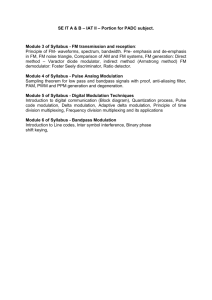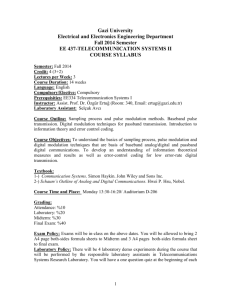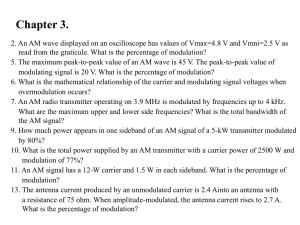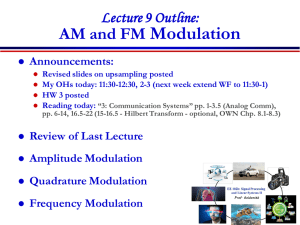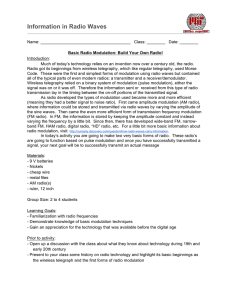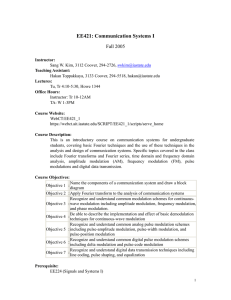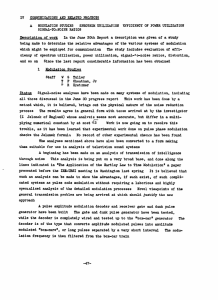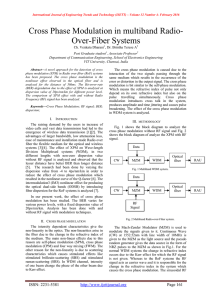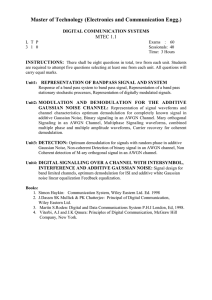Syllabus
advertisement
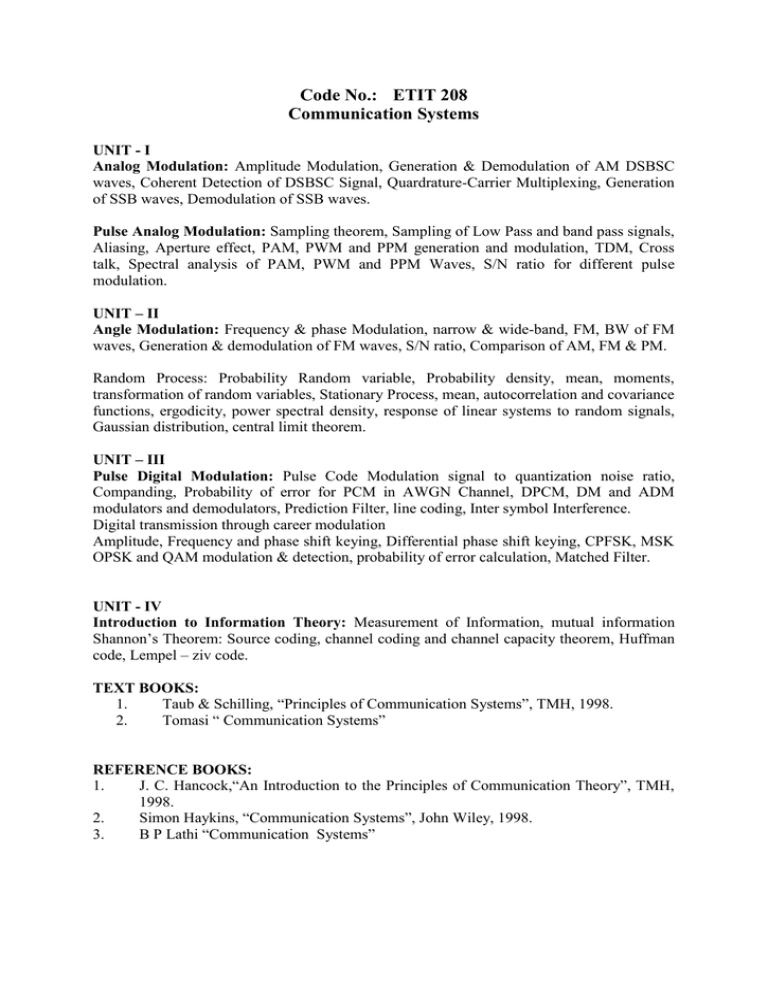
Code No.: ETIT 208 Communication Systems UNIT - I Analog Modulation: Amplitude Modulation, Generation & Demodulation of AM DSBSC waves, Coherent Detection of DSBSC Signal, Quardrature-Carrier Multiplexing, Generation of SSB waves, Demodulation of SSB waves. Pulse Analog Modulation: Sampling theorem, Sampling of Low Pass and band pass signals, Aliasing, Aperture effect, PAM, PWM and PPM generation and modulation, TDM, Cross talk, Spectral analysis of PAM, PWM and PPM Waves, S/N ratio for different pulse modulation. UNIT – II Angle Modulation: Frequency & phase Modulation, narrow & wide-band, FM, BW of FM waves, Generation & demodulation of FM waves, S/N ratio, Comparison of AM, FM & PM. Random Process: Probability Random variable, Probability density, mean, moments, transformation of random variables, Stationary Process, mean, autocorrelation and covariance functions, ergodicity, power spectral density, response of linear systems to random signals, Gaussian distribution, central limit theorem. UNIT – III Pulse Digital Modulation: Pulse Code Modulation signal to quantization noise ratio, Companding, Probability of error for PCM in AWGN Channel, DPCM, DM and ADM modulators and demodulators, Prediction Filter, line coding, Inter symbol Interference. Digital transmission through career modulation Amplitude, Frequency and phase shift keying, Differential phase shift keying, CPFSK, MSK OPSK and QAM modulation & detection, probability of error calculation, Matched Filter. UNIT - IV Introduction to Information Theory: Measurement of Information, mutual information Shannon’s Theorem: Source coding, channel coding and channel capacity theorem, Huffman code, Lempel – ziv code. TEXT BOOKS: 1. Taub & Schilling, “Principles of Communication Systems”, TMH, 1998. 2. Tomasi “ Communication Systems” REFERENCE BOOKS: 1. J. C. Hancock,“An Introduction to the Principles of Communication Theory”, TMH, 1998. 2. Simon Haykins, “Communication Systems”, John Wiley, 1998. 3. B P Lathi “Communication Systems”
